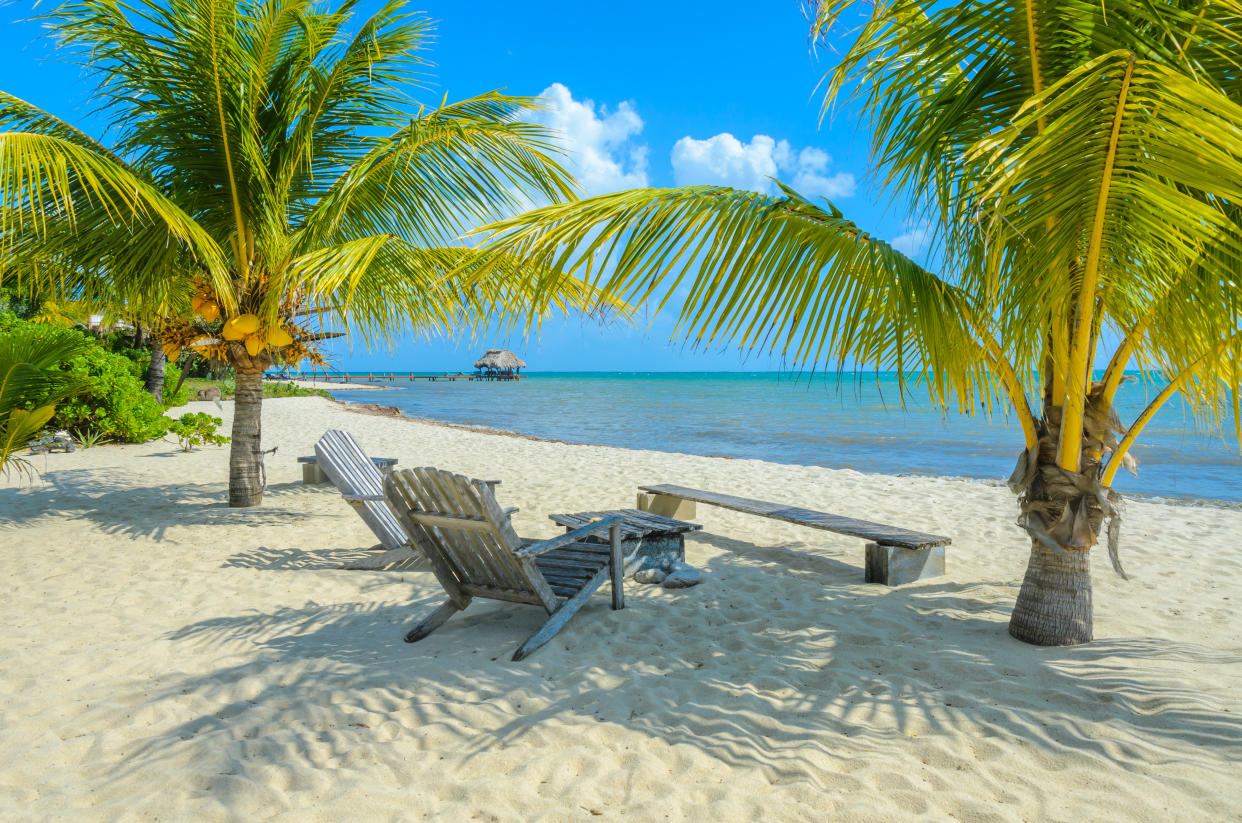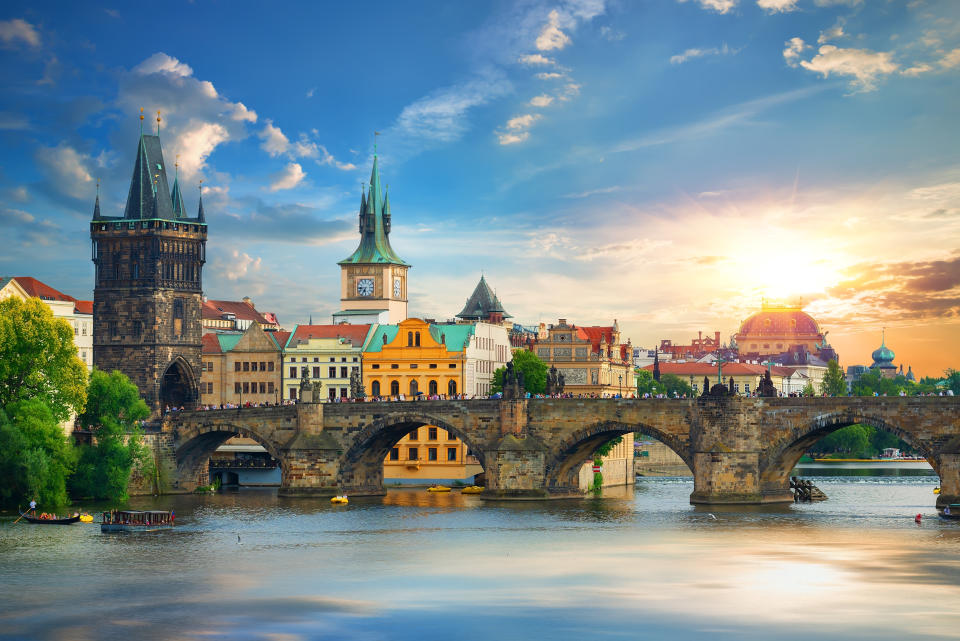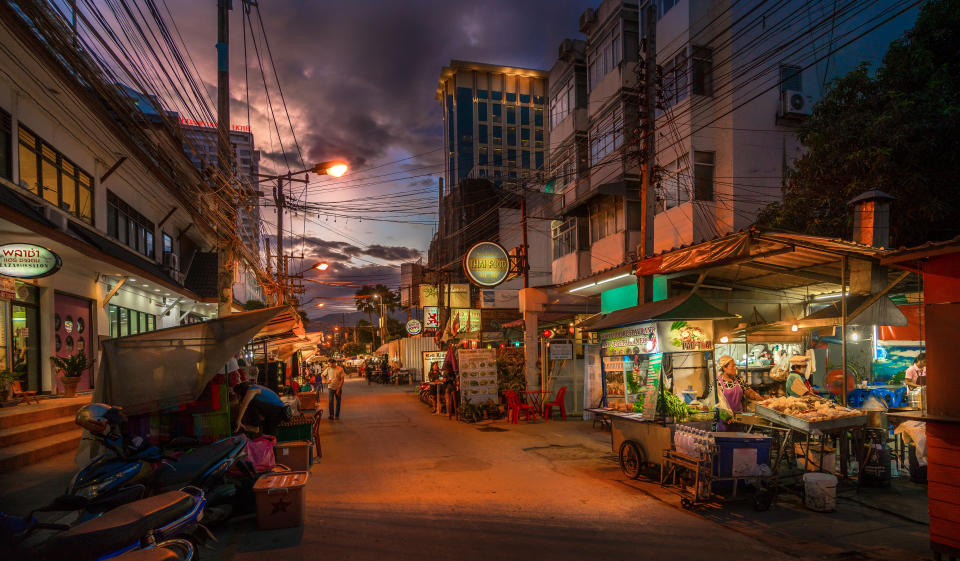So fed up with U.S. politics that you're 'moving to Canada'? Here are 6 countries where expats feel at home

If you’re disheartened enough by the U.S. political and cultural divide to declare, “I’m moving to Canada!” you are far from alone right now. Online search traffic around how to permanently join our neighbors to the north has been consistently rising over the past few months and skyrocketed on Sept. 29, the night of the first presidential debate.
The trend continued on election night, which is when International Living, a 40-year-old expat guide, noticed that traffic to its “move out of the U.S.” pages spiked nearly 300 percent — and that’s on top of the 1,600 percent increase the publication has tracked since the end of May.
“Suffice to say: People are looking for an escape,” International Living executive editor Jennifer Stevens noted Thursday in a press release about Canadian alternatives for wannabe expats.
“Google reports an increase in people searching for move-to-Canada information — but what many people don’t realize is that it’s relatively tough to move there. By contrast, you’ll find all kinds of easier, sunnier, lower-cost options when you look south,” Stevens said. “The idea of moving to Canada is a knee-jerk response for a lot of people who are feeling frustrated right now. But there are better solutions — places where U.S. dollars will stretch, where the pace is slower, the weather is warm year-round and moving is more straightforward from an immigration standpoint, too.”

While the travel restrictions for Americans due to the ongoing COVID-19 pandemic certainly complicate any relocation planning at the moment — Canada and the EU have travel bans for most U.S. citizens — it’s still not a bad time to start researching and, if you’re serious about leaving, asking yourself some all-important questions about what kind of place could eventually make you feel at home.
“The real questions are the same as they’ve always been,” Dan Prescher, senior editor of International Living, tells Yahoo Life. “It’s always been a big deal to move abroad no matter what the reason. So, you need to profile yourself pretty ruthlessly before you go.”
For example: Can you learn some of a new language? Do you have climate preferences? Do you have school-age children? Medical needs? If you work from home, what are the internet speeds like in the countries you are looking at?
“Do the research. It’s never been easier to do the work,” Prescher adds. “Get on Facebook. Get on the bulletin boards. You can talk to expats in places where you’re interested in living in and hear what it’s like. … Do an exploratory trip — which of course has been hard these past few months.” When restrictions lift, though, “you can get there and get shown around by someone who knows the ropes. Try to stay long enough so that it’s not a vacation anymore. Check out the hospital, how easy it is to get medications, get your phone hooked up …” International Living also hosts conferences — formerly in-person but now virtual — which present experts and resources in various countries, with live Q&As, over a weekend. (For general details about leaving home, see the guide’s “How to Move Out of the U.S.”)
In its news release on Thursday, International Living offered up three warmer alternatives to Canada that are also relatively close by: Belize, Costa Rica and Mexico.
Belize
Pros: Primary language is English, U.S. currency is accepted, beautiful, warm, relatively low cost of living. And although immigration services appear to be closed due to the pandemic, U.S. citizens are currently welcome to visit, provided they test negative for COVID-19, according to the U.S. Embassy in Belize. So if you’re restless, and willing to risk traveling now, you can go and check it out.
Cons: The U.S. Department of State has issued a high-level travel advisory (level 3 out of 4) due to increased violent crime, much of it gang-related.
“The Belizean culture, I found, is somewhat like the Midwest culture that I came from,” Laura Diffendal, International Living Belize correspondent, who moved there in 2014 from Cleveland, Ohio, said in the news release.
Belize requires visitors to have sufficient funds to support themselves, a return ticket and a passport valid for at least three months beyond the date of arrival. Citizens of the U.S. or Canada can stay in Belize for up to one month without a visa, while longer stays require an updated visitor’s permit from the (currently closed) immigration office, although in some cases, an extended stay can be granted. Those who apply for permanent residence can work in Belize without a work permit.
Costa Rica

Pros: Costa Rica is open to U.S. citizens right now, for stays of up to 90 days, with proof of health insurance. With two international airports, it’s easy to travel back home; the democracy is among the world’s most stable; English is widely spoken; and there is no military, with funds instead spent on education, health care and pensions. Oh, and it’s warm and gorgeous.
Cons: The U.S. Department of State has issued a high-level travel advisory (level 3 out of 4) due to increased violent crime.
“Costa Rica has been a tourist and [an] environmental mecca for a long time, and part of their brand is welcoming North Americans,” says Prescher. “Plus, they don’t have a standing army, and the literacy rate is in the 90th percentile.” The national health care system covers every citizen and legal foreign resident and there are plenty of expat communities, making it pretty easy to settle in.
Mexico

Pros: Vibrant culture, low cost of living, warm climate, welcoming locals and expat communities.
Cons: The U.S. Department of State has issued a high-level travel advisory (level 3 out of 4) because of increased crime and kidnappings, with several states on a “do not travel” list for these reasons. The Centers for Disease Control and Prevention, meanwhile, has issued a level 3 travel health notice due to COVID-19. Non-essential travel restrictions due to COVID-19 are in place until at least Nov. 21.
Mexico is the world’s most popular destination for American expats, with a million and a half living there either full- or part-time. The wide range of communities includes casual beach towns, sophisticated cities and colonial gems — such as San Miguel de Allende, a UNESCO World Heritage Site that has surged as an expat hot spot over the past decade (and, along with the growing popularity, has experienced an uptick in crime). Visitors with valid passports can legally remain in Mexico for 180 days, making it a popular annual destination for snowbirds.
Also not necessarily on everyone’s radar — at least not like Canada is — are the Czech Republic, Portugal and Thailand, although all are restricting U.S. citizens from visiting at the moment, due to the pandemic.
Czech Republic

Pros: Low cost of living, good public transportation, accessible work visas.
Cons: Difficult language to learn, U.S. citizens not welcome at the moment.
“Central and Eastern Europe are actually really wonderful places to be an expat remote-worker-slash-digital-nomad because the culture is really nice, the cost of living is substantially cheaper, and when you walk around a city like Prague, for the most part, you still have 1,000 years of history to see, which is beautiful,” Jeff Opdyke, editor of the Savvy Retiree, who moved to Prague from Los Angeles in 2018, tells Yahoo Life.
“There’s a perception of it being very Soviet-bloc and behind the times, but it’s just not the case,” he says, adding that it’s also affordable. “My cost of living in Prague, one of the cultural capitals of Europe, is less than it was when I was living in Baton Rouge and working for the Wall Street Journal,” noting that the rent on his expansive apartment is about $1,300 a month and the rest of his expenses, as a single man who eats out at restaurants a lot, are about $450 a month.
Freelance workers can apply to be a part of what’s called the Zivnostensky List, which then leads to health insurance, a temporary residence permit and then, after five years, a path to citizenship and an EU passport.
Portugal

Pros: You can visit for up to 90 days without a visa and the cost of living is low — more than 29 percent below that of the U.S. People are welcoming, the climate is mild, and nabbing a work visa is also less difficult than in other parts of Europe.
Cons: There is currently a level 3 advisory from the State Department and the CDC due to COVID-19.
“You can show up in Portugal and apply for what’s called a D7 work visa,” explains Opdyke, “and the most challenging rule is you have to prove you earn the minimum Portugal wage, which is about $750 a month.”
In addition to being able to stay in the country without a visa for up to 90 days, a “Tech Visa” is available for “highly qualified immigrants recruited by companies active in the area of technology and innovation,” according to the country's immigration website. And a Golden Visa program offers a pathway to visas through real-estate investments.
Thailand

Pros: Very low cost of living, tropical climate, high-quality medical care. Also, the State Department gives the country a relatively low COVID-19 warning of level 2 out of 4.
Cons: U.S. citizens are not currently welcome for non-essential travel due to the pandemic. Also, it’s quite far from home.
Thailand is “probably biggest bang for buck in Southeast Asia right now,” says Prescher, adding that Americans will also find a thriving economy, a very modern and connected culture and a welcoming attitude. “There is some political Sturm und Drang in Bangkok,” he adds, “but upcountry, things are very calm and very affordable. Folks on the ground tell us that if you find a nice, midsize city, the living is easy and prices are cheap. And the weather is great.”
Read more from Yahoo Life:
How to discuss the election with your family: ‘Keep it moving gracefully’
College students, grandmothers and immigrants: These are the faces of first-time voters
Want lifestyle and wellness news delivered to your inbox? Sign up here for Yahoo Life’s newsletter.


